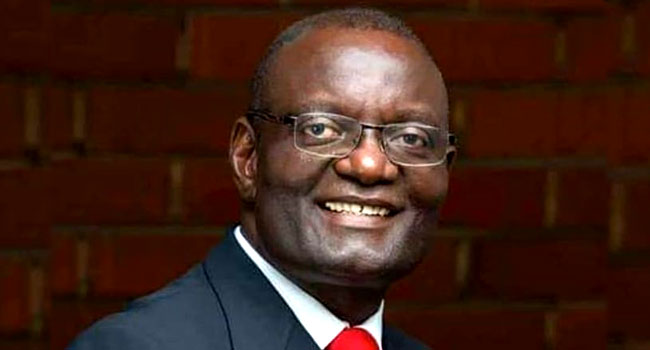By Frank Kintum
The Nigerian Shippers’ Council (NSC) has stated that resistance to regulations, litigations and inconsistent government policies are some of the key challenges facing the Council.
This was revealed by the Executive Secretary/Chief Executive Officer of the Council, Mr. Emmanuel Jime at the 9th Nigeria Annual Transport Lecture, which held at the Shehu Musa Yar’Adua Centre, Abuja recently.
Represented by the Deputy Director, Strategic Planning and Research of the Council, Mr. Christian Chimezie, he stated that the Council was faced with the challenge of resistance to regulation by public agencies and private sector operators.
He also explained other challenges as “Litigations by Seaport Terminal Operators and Shipping Companies challenging the regulatory mandate and Notices of the Council in spite of expiration of ‘Acceptance’ and pledge of ‘Cooperation’; and Inconsistent government policies”.

On prospects, the Executive Secretary explained that “the Council has mapped out the following short and long term strategies to enable it to accomplish its mandate:-Concerted effort to promote and enforce healthy competition; and Implementation of Standard Operating Procedure (SOP) of all Regulated and Associate service providers”.
Other strategies mapped out by the Council include Instituting a Port Community and Control System- an Integrated Maritime Fusion Centre (IMFC); Effective monitoring and enforcement of Tariffs, Rates, and Operating Standards; and Periodic review of set Bench Mark rates.
It was also stated that the Council also liaises with Vehicle Transit Areas (VTAs) host state governments towards the provision of infrastructure and other facilities to VTA project sites.
“Pursuant to its manpower development needs in achieving its mandate as Port Economic Regulator, the Council would train, develop and sustain a skilled and knowledgeable workforce; Liaise with Inland Dry Port (IDP) host state governments towards the provision of infrastructure and other facilities at the IDP project sites; and promote the improvement of other modes of transportation for evacuation of goods from the ports”.

He listed the roles of NSC in Transport and Transport Related Infrastructure to include Stakeholders/Industry Support Services; Stakeholders’ Representation Services; Advisory Services; Advocacy Services; Research Services; Information Services; and Education and Enlightenment Services.
Basically, the responsibility of the Nigerian Shippers’ Council is to ensure: Efficient and timely delivery of shipping services to importers and exporters by shipping service providers under the most economical arrangements; and Moderation and stabilization of costs (freight rates, port charges, local shipping charges, haulage charges, etc.).
It is also mandated to ensure that practitioners are enlightened on international trade issues both at the macro and micro levels; and also provide regular and reliable advice to the Federal Government on matters affecting shipment of goods to and from Nigeria.
Other dignataries who graced the annual event include the Permanent Secretary of the federal ministry of Transport, Dr. Magdalene Ajani; former Permanent Secretary, ministry of Special Duties and Inter-governmental affairs, Dr. Anthonia Ekpa (who was the lead Speaker); Director General of the National Automotive Design and Development Council, Mr. Jelani Aliyu; Managing Director of Eco Bus, Mr. Johann Reiger; National President of the Nigeria Association of Road Transport Owners, Alhaji Yusuf Othman among others.
The Hon. Ministers of Aviation and Works, as well as the Chief Executive Officers of the Nigeria Aviation Management Agency, Nigeria Civil Aviation Authority, Nigeria Institute of Transport Technology, Federal Road Safety Corps, Infrastructure Concession Regulatory Commission, Julius Berger, Toyota Nigeria, etc were also represented.













